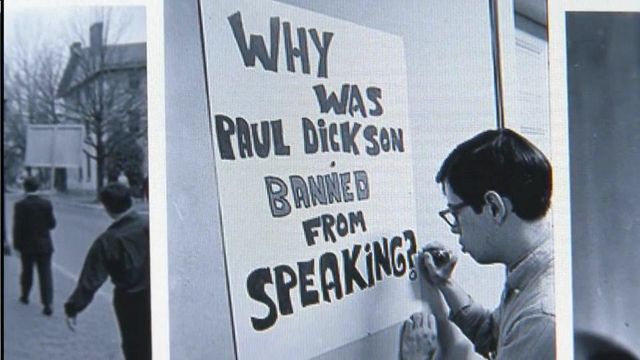Digital collection examines NC's politically charged Speaker Ban Law
The State Archives of North Carolina is marking the 50th anniversary of the state's Speaker Ban Law with a digital collection focused on the controversy surrounding the statute.
Posted — UpdatedThe move outraged educators, including the late William Friday, who served as president of the University of North Carolina system for 30 years.
Students at the university system's flagship campus in Chapel Hill tested the law, inviting banned speakers to campus, some who famously spoke on a public sidewalk on Franklin Street in the mid-1960s.
"It takes you back to that time period, where you can listen in," Sarah Koonts, director of the North Carolina Division of Archives and Records, said. "It's almost like you're sitting in the room and listening to the hearings."
Historians say the collection unlocks an important part of North Carolina's modern history.
"I think it's now viewed as one of the central episodes of the 1960s in North Carolina," said historian Michael Hill. "It really brought to the fore freedom of thought and freedom of speech in this state."
The Speaker Ban Law was eventually overturned by a three-judge federal court in 1968, and the law was repealed in May 1995.
Related Topics
• Credits
Copyright 2024 by Capitol Broadcasting Company. All rights reserved. This material may not be published, broadcast, rewritten or redistributed.






